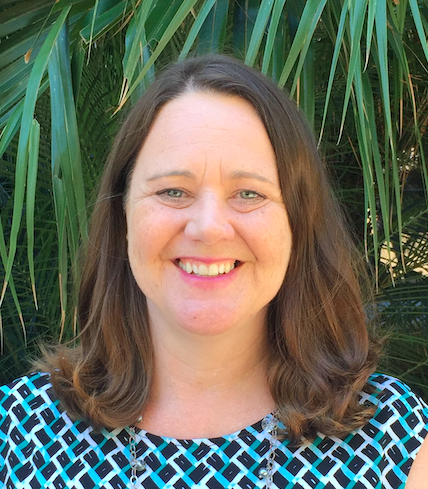
My Expertise
I am an international expert in ovarian cancer research, with a focus on genetics and genomics, and have a leadership role in two large international consortia. My vision is to improve ovarian cancer prognosis, by early detection through genetic risk prediction and by developing personalised treatment using tumour profiling. I am performing large scale genetics and genomics projects, using samples and epidemiological and long-term clinical data collected as part of our large multidisciplinary international consortia.
Keywords
Fields of Research (FoR)
Cancer genetics, Genomics and transcriptomics, Predictive and prognostic markers, Obstetrics and gynaecologySEO tags
Biography
I co-lead the international ovarian tumor tissue analysis (OTTA) consortium, performing large scale genomics research to improve the survival of ovarian cancer patients.
I am a Professor in the School of Clinical Medicine and lead the Molecular Oncology Group. I am a member of the Adult Cancer Program in the Lowy Cancer Research Centre.
I lead large consortium projects on both ovarian cancer genetic susceptibility and tumour profiling. I...view more
I co-lead the international ovarian tumor tissue analysis (OTTA) consortium, performing large scale genomics research to improve the survival of ovarian cancer patients.
I am a Professor in the School of Clinical Medicine and lead the Molecular Oncology Group. I am a member of the Adult Cancer Program in the Lowy Cancer Research Centre.
I lead large consortium projects on both ovarian cancer genetic susceptibility and tumour profiling. I established and co-leads the Ovarian Tumour Tissue Analysis (OTTA) consortium and am on the steering committee of the Ovarian Cancer Association Consortium (OCAC).
My Grants
Current
National Health and Medical Research Council 2022-2026
L3 Investigator grant: Development of clinical tests to improve treatment for ovarian cancer patients.
National Health and Medical Research Council 2021-2026
Prospective Ovarian Cancer Cohort to Authenticate Stratification of Prognosis in Ovarian Tumours (POCCA-SPOT)
Department of Defence 2016-2023
Multidisciplinary Ovarian Cancer Outcomes Group (MOCOG).
Recently completed
Cancer Australia 2018-2022
The contribution of rare alleles to non high grade serous ovarian cancer.
Cancer Council NSW 2018-2021
Moving towards personalised treatments for ovarian cancer.
National Institute of Health (NIH) USA 2014-2019
Identifying prognostic markers and therapeutic targets for serous ovarian cancer.
National Institute of Health (NIH) 2014-2019
The contribution of rare alleles to ovarian cancer in the population.
Rivkin Center for Ovarian Cancer Research. Pilot grant. 2018-2019
Genetic susceptibility to non high grade serous ovarian cancer.
My Qualifications
PhD University of Melbourne
My Awards
2022 NHMRC Elizabeth Blackburn Investigator Grant Award for basic science.
My Research Activities
The aim of my research program is to improve ovarian cancer risk prediction and prognosis, by using large international consortia that are adequately powered to have an impact for patients.
Improving risk prediction for ovarian cancer.
The aim is to identify women at increased risk of ovarian cancer before they develop the disease, by studying inherited changes in their DNA. We are identifying two types of changes.
1) Common variants
Finding large numbers of changes, each with a very small increased risk.
These changes are identified by performing Genome Wide Association Studies (GWAS) in large numbers of cases and controls from two international consortia. The Ovarian Cancer Association Consortium (OCAC) and Consortium of Investigators of Modifiers of BRCA1/2 (CIMBA).
2) Rare variants
Finding changes that are rare in the population but have a moderate increased risk.
These changes are identified by performing whole exome sequencing (WES) and large-scale validation by targeted sequencing in large numbers of cases and controls. High grade serous ovarian cancer (HGSOC): We have screened 80 genes in up to 6,000 ovarian cancer cases and 6,000 unaffected controls. Non HGSOC: We have screened 32 genes in 2,000 ovarian cancer cases and 2,000 unaffected controls.
Improving prognosis for Ovarian Cancer
The aim is to identify markers that can group women with similar changes in their tumours and determine their prognosis. Being able to predict how well a woman may respond to current treatments may identify a group of women who need alternative treatments. These studies are performed through the Ovarian Tumour Tissue Analysis (OTTA) Consortium.
1) Validation of prognostic markers by immunohistochemistry (IHC)
Analysis of individual biomarkers using large scale centralised staining and scoring of tissue microarrays (TMA).
2) Identifying new prognostic markers for HGSOC
Large scale genomic analysis of formalin fixed paraffin embedded (FFPE) tumours using the latest technologies such as NanoString RNA expression, screening for somatic mutations using TamSeq and DNA copy number using shallow whole genome sequencing (sWGS).
My Research Supervision
Supervision keywords
Areas of supervision
Genetics and Genomics of Ovarian Cancer
Professor Ramus supervises PhD students, as well as honours and ILP students.
My Engagement
American Association for Cancer Research (AACR)
Ovarian Tumor Tissue Analysis (OTTA) Consortium
Ovarian Cancer Association Consortium (OCAC)
Consortium of Investigators of Modifiers of BRCA1/2 (CIMBA)
Joint lead of steering committee OTTA
Member of steering committee OCAC
Member of genotyping committee OCAC
Member of data access committee OCAC
Member of data access committee OTTA
Member of pathology working group CIMBA
Location
Adult Cancer Program
Level 2, Lowy Cancer Research Centre
Cnr High and Botany St, UNSW
Map reference (Google map)